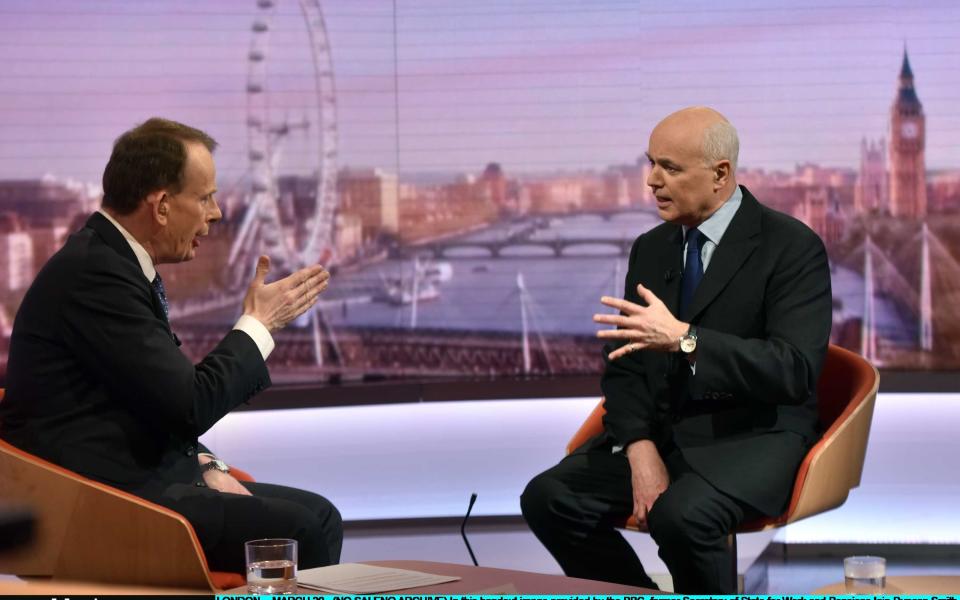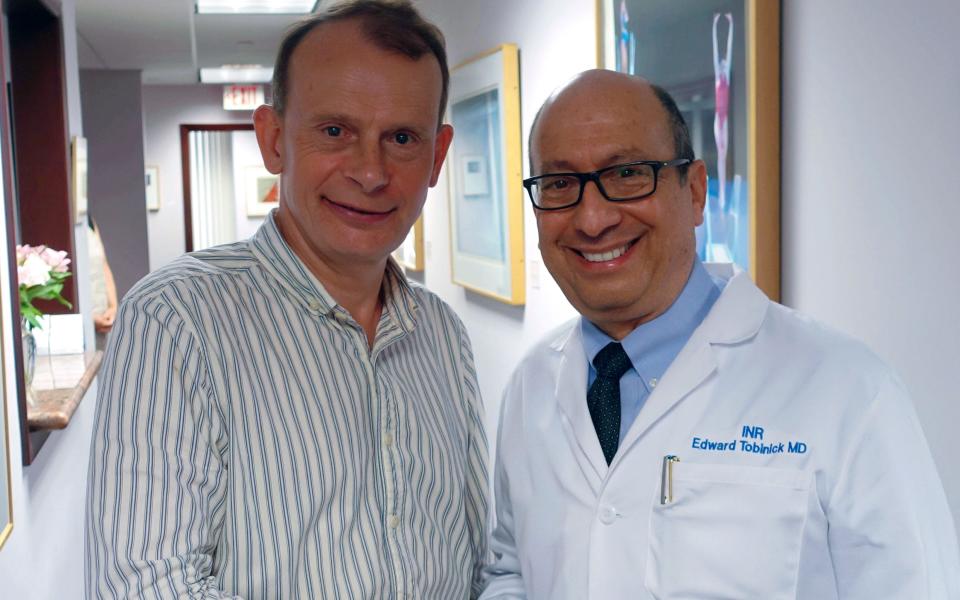Andrew Marr: how having a stroke changed my marriage for the better
Andrew Marr says he has had a “better and warmer” relationship with his wife since suffering a stroke.
The BBC presenter struggles to do many things he once took for granted, from physical exercise - he no longer cycles, swims or skis - to simpler tasks such as tying his shoelaces or cutting up his own steak in a restaurant.
However, his marriage to Jackie Ashley, a fellow journalist, has strengthened. Four months before the stroke, he was photographed in an “embarrassing” embrace with a female colleague outside a Soho pub, and publicly apologised to his wife.
A year earlier, it emerged that he had taken out a super-injunction to prevent the media publishing details of an extra-marital affair that happened several years previously. Marr had been making maintenance payments for a child he believed to be his, but DNA tests later proved he was not the father.
Speaking about his recovery, Marr told Radio Times that the stroke had a positive effect on his marriage. “It’s probably made it better and warmer, actually,” he said.
“I was very lucky with Jackie because she had grown up from when she was a young girl with a father [the late Labour politician and peer Lord Ashley of Stoke] who was deaf. You might think she has had the worst luck of all, having looked after her father, and then this happens to me.
“But she has been very good about shepherding me through the process.”
Marr, 57, disclosed that he tries to conceal the effect of his stroke from viewers when he records The Andrew Marr Show. “You don’t want people to think, ‘Ooh, how is his left hand doing?’ You want them to be thinking about the questions I am asking and, more importantly, the answers I am or am not getting,” he said.
Changes to his lifestyle include moving from his “very large” house in south-west London to a smaller one in Primrose Hill, north London, enabling him to walk to Broadcasting House. While he was “never suicidal” over his condition, Marr said it was normal for stroke victims to go through periods of depression.
“What I have to emphasise is: it’s not the great big existential questions. It’s that yet again it takes 35 minutes to get dressed; yet again you drop the toast on the floor; yet again you find you can’t walk from A to B properly. It’s the small things that accumulate and make life a bit crappier than it otherwise would be.”
He has made a new documentary, My Brain and Me, about his condition. Cameras follow him to the US, where he tries a new anti-inflammatory drug. The BBC Two film will be broadcast on February 14.
Marr believes the stroke was brought on by intensive exercise on a rowing machine. Doctors told his wife and three children that he was unlikely to survive, and then that he would likely be confined to a wheelchair for the rest of his life.
He said he had made the documentary because he felt an obligation to share his “positive” experiences in the hope they would provide encouragement to others.

 Yahoo News
Yahoo News 


